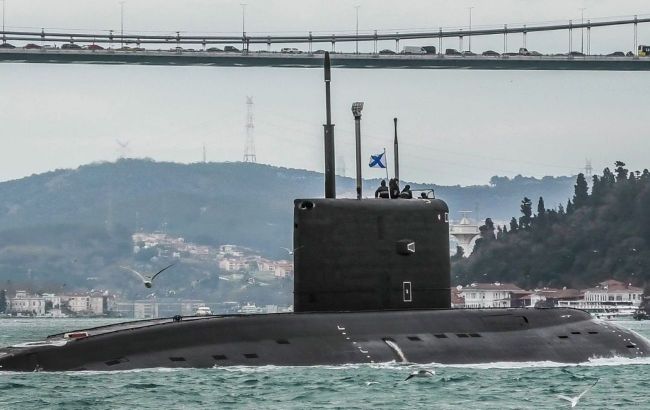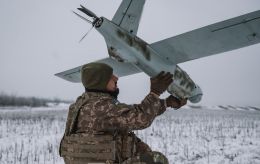UK companies unknowingly helped Russia build submarines, media reports
 Illustrative photo: British companies unwittingly helped Russia build submarines (Russian media)
Illustrative photo: British companies unwittingly helped Russia build submarines (Russian media)
A network linked to Russian intelligence has been involving British companies in the unwitting construction of Russia's Arctic submarines for nearly ten years, The Times reports.
The outlet writes that the network bypassed sanctions and export controls to acquire sensitive technologies and research vessels from Europe, the US, Canada, and Japan, worth over 50 million euros between 2014 and 2024.
What was purchased?
Among the purchased equipment were high-tech British components, including sensors and remotely operated devices worth over £1 million. These were used in the creation of Russia's early-warning system capable of detecting NATO submarines in the Arctic Ocean and protecting Russian nuclear sites. The sold equipment included a drone for surveying and laying cables, as well as an advanced sonar sensor suitable for hydrographic reconnaissance operations.
A key role in the scheme was played by the Cypriot company Mostrello Commercial Ltd, which bought sensitive equipment worth over $50 million. In 2024, the US Department of the Treasury added the company to its sanctions list as part of measures against entities supporting Russia's military-industrial complex.
Documents from the US sanctions indicate that the company was part of a network that laid cables for the Russian government.
According to the report, Russian-Kyrgyz businessman Alexander Shnyakin, who headed Mostrello Commercial Ltd., was sentenced to four years and ten months in prison by a German court in September. He was found guilty of illegally selling sensitive military technologies to Russia through his company.
Cover for Russia’s underwater intelligence program
As reported by the German Prosecutor's Office, Mostrello Commercial Ltd. essentially acted as a cover for a Russian procurement network that supplied equipment for Russia's underwater intelligence program Project Harmony. This project involves underwater microphones, sonars, and other technologies designed to detect NATO submarines in Arctic waters.
According to the investigation, there are grounds to believe that at least part of the network had close ties with Russian intelligence services.
The investigation has led to calls for the UK's Department for Business and Trade (DBT) to strengthen control and prevent attempts to bypass sanctions.
In response to the investigation, the Chair of the Foreign Affairs Committee, Emily Thornberry, stated:
"A sanctions regime is only as good as its enforcement. A robust sanctions regime must be able to deal with sophisticated attempts to circumvent it, or there is no point in it. We mustn’t be afraid to kick down doors if necessary to ensure that the rules are taken seriously."
The Danish company Rockwool sold ship insulation to Russia, which was used in three of the most modern and advanced Russian submarines.
Recently, a Russian citizen was arrested in Germany on suspicion of exporting components used by Russia in the production of military equipment, including drones. He also held German citizenship.
Additionally, Russian airlines procured spare parts worth at least $1.2 billion from May 2022 to June 2023 in circumvention of sanctions. This amount may not include all supplies.


